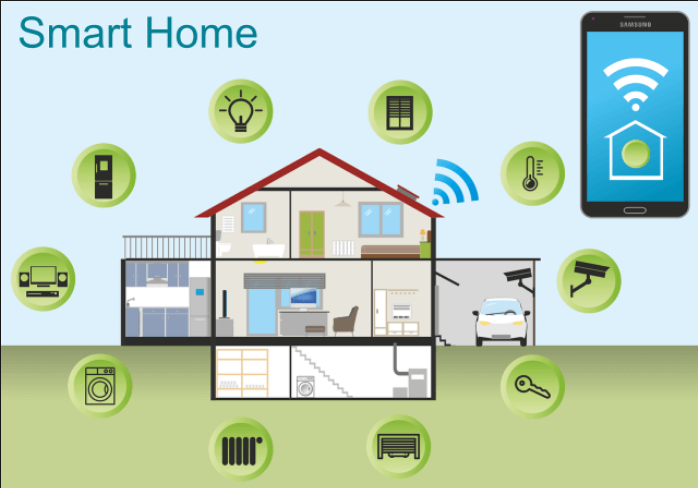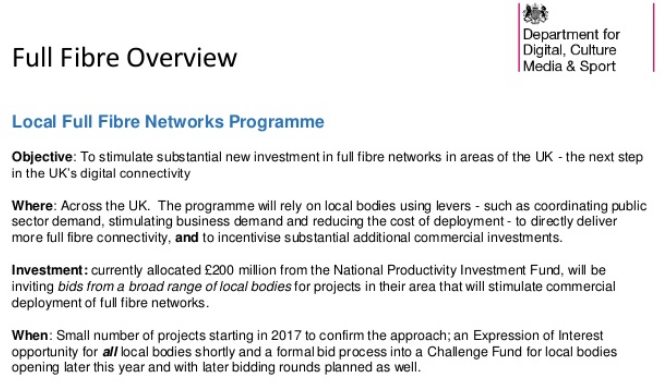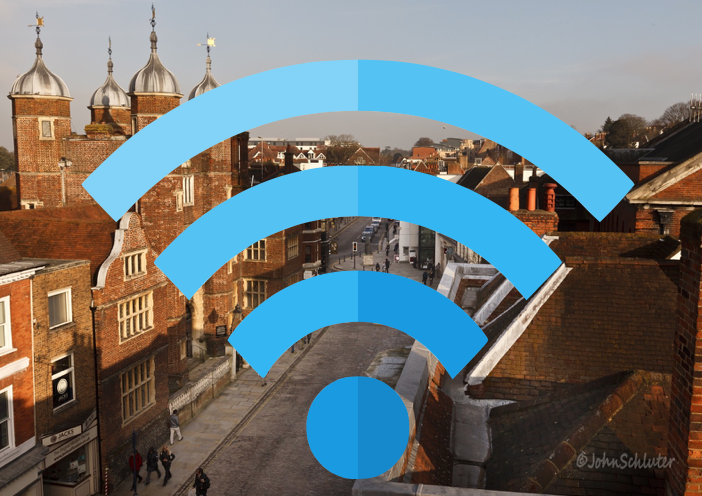 Abraham Lincoln
If given the truth, the people can be depended upon to meet any national crisis...
Abraham Lincoln
If given the truth, the people can be depended upon to meet any national crisis...
 Guildford news...
for Guildford people, brought to you by Guildford reporters - Guildford's own news service
Guildford news...
for Guildford people, brought to you by Guildford reporters - Guildford's own news service
Feature: Guildford Wifi – A First Step On the Road To Digital Revolution
Published on: 4 Dec, 2017
Updated on: 6 Dec, 2017
By Gordon Jackson
Conservative borough councillor for Pirbright, and former Mayor of Guildford, writes about the recent council Executive’s decision to offer a WiFi connection for Guildford…
This article sets out the opinions of the author. It does not necessarily represent the policy of Guildford Borough Council or the Conservative group at Millmead.
For the borough council to offer a WiFi concession for Guildford is, of itself, not a ground-breaking decision. There are already over sixty WiFi concessions that have been introduced across the country, so the concept is not new.
 But many of the early roll-outs were funded by the councils themselves and have proved expensive and in some cases ineffective. The new approach, which has been successfully implemented elsewhere, Watford for example, is to offer a concession where a private sector provider installs the hardware and runs the network at their cost. Initially, this will be limited to the town centre and the process of procuring the best supplier will now begin.
But many of the early roll-outs were funded by the councils themselves and have proved expensive and in some cases ineffective. The new approach, which has been successfully implemented elsewhere, Watford for example, is to offer a concession where a private sector provider installs the hardware and runs the network at their cost. Initially, this will be limited to the town centre and the process of procuring the best supplier will now begin.
You will be able to access the WiFi for free as long as you have access to a wireless-enabled laptop, tablet or smartphone. There will be a “Guildford App” that will enable you to browse retail and leisure offers, book restaurants and find out when the next bus or train departs. You will have to register by giving an email address, but when logged on to the Town WiFi your own data plan with your provider will not be used.
All this will be fantastic for the town, but it is the developments that we will see going forward that are really exciting. We are extremely fortunate in Guildford to host the world leading 5G Innovation Centre at the University of Surrey, which is developing the technology behind the next generation of mobile communication.
In partnership with Bristol University and King’s College London, Surrey has been awarded £16 million by the government to develop a cutting-edge 5G test network for the UK.
The universities will work together to create three small-scale mobile networks which together will form the test network. Each network will have a number of the elements expected in a commercial 5G network – including mobile signal receivers and transmitters and the technology to handle 5G signals – to support trials of its many potential uses.
There is no doubt that 5G will change our world. Performance aspirations of 5G represent a massive increase on what is available at present.
Included in the performance goals:
- Up to 1000 times increased bandwidth, per unit area
- Up to 100 times more connected devices
- Up to 10Gbps connection rates to mobile devices in the field
- A perceived network availability of 99.999%
- A perceived 100% network coverage
- Up to 90% reduction in network energy utilisation
As with our current 4G system, the introduction of 5G does not mean that our existing infrastructure will become redundant. A key feature of 5G architecture is that there will be large quantities of low range, low power “small cells” attached to buildings and street furniture, such as lampposts and CCTV masts, which strategically place radios closer to users.
This will improve the coverage, capacity, and overall quality of experience of mobile users as well as enabling a whole range of data sensors. Each small cell will be transmitting and receiving data that will have to be passed on to a data centre for processing.
Vast quantities of data will be transmitted and there will be an extensive network developed to accomplish this. Ideally, this will use up to date fibre optic cable, but this may not always be possible and Wi-Fi (including the new town centre Wi-Fi), together with the old copper-based networks will be an essential backbone of the network.
 The infrastructure will enable the SMART city technologies that are already being extensively developed. SMART cars, SMART parking, SMART wearables, EHealth, SMART traffic management, SMART homes, SMART utilities, SMART retail – all of these are becoming a reality. In addition, 3D technology is developing fast and will benefit from the increased speed of 5G.
The infrastructure will enable the SMART city technologies that are already being extensively developed. SMART cars, SMART parking, SMART wearables, EHealth, SMART traffic management, SMART homes, SMART utilities, SMART retail – all of these are becoming a reality. In addition, 3D technology is developing fast and will benefit from the increased speed of 5G.
Guildford is already renowned as being at the heart of innovation. We are home to world-leading companies and academics that are at the forefront of the digital revolution. Of particular note are the clusters that are developing around communications, space technologies, digital health and gaming. All of these will require super-connective infrastructure.
As 5G becomes a reality, developers will need to test new applications and there is a pressing need for a “town-centre test bed”. The government and private infrastructure providers are keen to forge partnerships with local councils, academic institutions and commercial developers to promote today’s solutions to the problems of tomorrow.
Companies take a long-term view and, as with WiFi, they recognise the value of an initial investment that will ensure that they can provide profitable 5G services in the future. It is not possible to build a true 5G network at the moment. However, using the WiFi, which GBC propose to install, together with advanced 4G technology, and, crucially, new fibre optic cable, a “super-connected” digital test bed can be built. This will not only simulate a 5G environment now, but it will be 5G ready for the future.
Guildford is ideally placed to put itself forward as a test bed location. It is a leading retail centre with a flourishing visitor economy, but it also experiences many of the problems, which beset modern towns, that the new SMART technologies will seek to address.
Our town is conveniently situated close to London and has great transport links so that researchers can get easy access and the Surrey Hills provide the potential for rural testing only a few miles away from a commercial and academic centre of excellence.
 The council has already submitted expressions of interest to the Local Full Fibre Network Fund administered by the Department for Digital, Culture, Media and Sport with a view to attracting fibre investment in the town and discussions are ongoing with the University of Surrey as to how the test-bed vision might be realised. Projects around traffic management, air quality, town centre management and innovative retail, to mention but a few, are all of potential interest.
The council has already submitted expressions of interest to the Local Full Fibre Network Fund administered by the Department for Digital, Culture, Media and Sport with a view to attracting fibre investment in the town and discussions are ongoing with the University of Surrey as to how the test-bed vision might be realised. Projects around traffic management, air quality, town centre management and innovative retail, to mention but a few, are all of potential interest.
Once a test-bed has been established it would be opened up to developers, who will come up with their own imaginative ideas for tomorrow’s world.
Nobody can predict all of the benefits that are going to flow from the new technologies, but we can say that we will live in a very different world in ten or twenty years’ time and the decision to offer a WiFi concession is just the first step towards realising this and to ensuring that Guildford maintains its position as a town at the leading edge of innovation.
©Gordon Jackson

"Found any?" - "Nope, it all looks green to me!" (See Opinion: The Future is Congested, the Future is Grey)
www.abbotshospital.org/news/">





Recent Articles
- Latest Evidence in Sara Sharif Trial
- Ash’s New Road Bridge Is Named – and November 23rd Is Opening Day
- Class A in Underwear Leads to Jail Sentence
- Historical Almshouse Charity Celebrates Guildford in Bloom Victory
- Notice: Shalford Renewable Showcase – November 16
- Firework Fiesta: Guildford Lions Club Announces Extra Attractions
- Come and Meet the Flower Fairies at Watts Gallery
- Updated: Royal Mail Public Counter in Woodbridge Meadows to Close, Says Staff Member
- Letter: New Developments Should Benefit Local People
- Open Letter to Jeremy Hunt, MP: Ash’s Healthcare Concerns


Search in Site
Media Gallery
Dragon Interview: Local Artist Leaves Her Mark At One of England’s Most Historic Buildings
January 21, 2023 / No Comment / Read MoreDragon Interview: Lib Dem Planning Chair: ‘Current Policy Doesn’t Work for Local People’
January 19, 2023 / No Comment / Read MoreA3 Tunnel in Guildford ‘Necessary’ for New Homes, Says Guildford’s MP
January 10, 2023 / No Comment / Read More‘Madness’ for London Road Scheme to Go Ahead Against ‘Huge Opposition’, Says SCC Leader
January 6, 2023 / No Comment / Read MoreCouncillor’s Son Starts Campaign for More Consultation on North Street Plan
December 30, 2022 / No Comment / Read MoreCounty Council Climbs Down Over London Road Works – Further ‘Engagement’ Period Announced
December 14, 2022 / No Comment / Read MoreDragon Interview: GBC Reaction to the Government’s Expected Decision to Relax Housing Targets
December 7, 2022 / No Comment / Read MoreHow Can Our Town Centre Businesses Recover? Watch the Shop Front Debate
May 18, 2020 / No Comment / Read More










Recent Comments